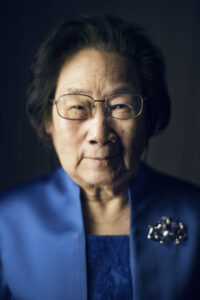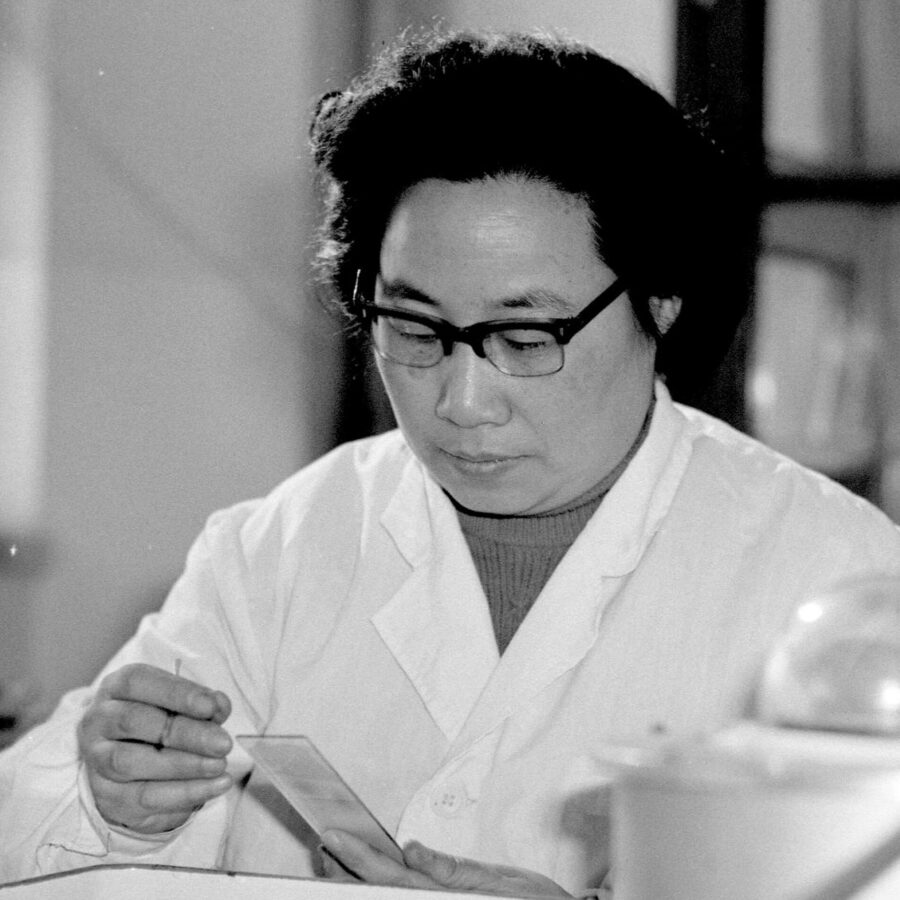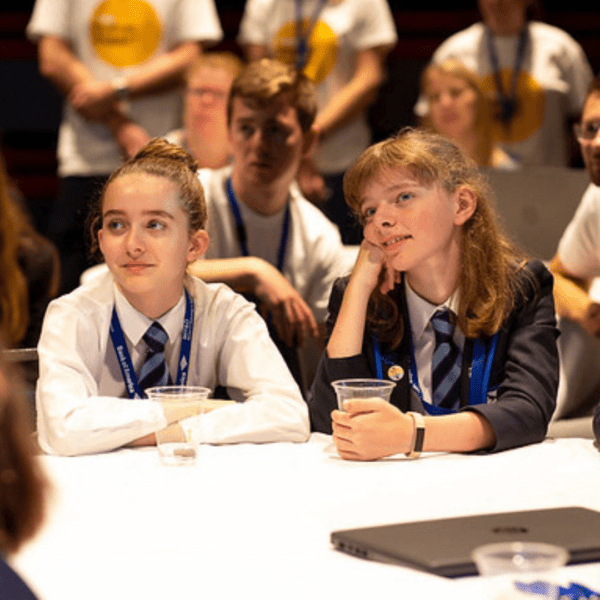Growing Up
Youyou Tu was born and raised in Ningbo, Zhejiang, China. She studied at Peking University in Beijing. After university, Tu moved to the Academy of Traditional Chinese Medicine. Here, she is the Chief Scientist!
Tu found inspiration for medicine after contracting and recovering from tuberculosis at 16.
Her Career & Nobel Prize
Malaria is caused by a single-cell parasite that causes fever. Traditional Chinese medicine uses sweet wormwood to treat fever. In China, Mao Zedong set up a secret drug discovery project. Scientists worldwide screened over 240,000 compounds without success.

After studies of traditional herbal medicines, Tu extracted artemisinin. This substance inhibits the malaria parasite. In 1969, Tu had an idea of screening Chinese herbs. She first investigated the Chinese medical classics in history, visited old practitioners of Chinese medicine all over the country on her own, and made a notebook namely A Collection of “Single Practical Prescriptions for Anti-Malaria”. Her notebook summarised 640 prescriptions. Her team also screened over 2,000 traditional Chinese recipes and made 380 herbal extracts, which were tested on mice. One compound was effective, sweet wormwood (Artemisia annua), which was used for “intermittent fevers,” a hallmark of malaria. At first, it didn’t work, because they extracted it with boiling water. Tu suggested the hot water had already damaged the active ingredient in the plant, therefore proposed a method using low-temperature ether to extract the effective compound instead. The animal tests showed it was completely effective in mice and monkeys. Furthermore, Tu volunteered to be the first human subject. “As head of this research group, I had the responsibility,” she said. It was safe, so she conducted successful clinical trials with human patients. Nearly half a century after her life-changing quest began, Tu was awarded the Nobel prize in medicine for her role in creating a drug that helped slash malaria mortality rates in Africa and Asia, saving millions of lives.
Awards & Legacy
Tu has won many awards throughout her career. These awards include Outstanding Contribution Award, China Academy of Chinese Medical Sciences and Lasker-DeBakey Clinical Medical Research Award. She was grateful for the Lasker award, but said, “I feel more reward when I see so many patients cured.” Her latest award is the Order of the Republic in 2019.
To learn about more women and non-binary people in bioscience, check out the song below!






